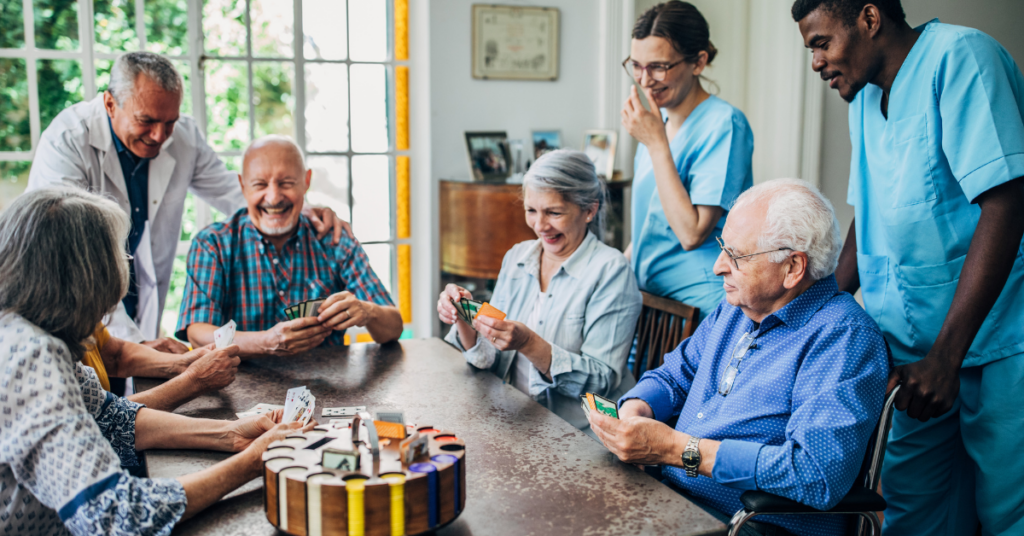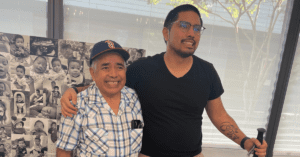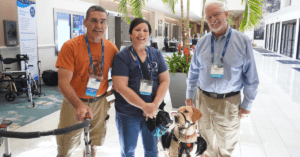
According to the National Council on Independent Living, Centers for Independent Living (or CILs) are community-based, cross-disability, non-profit organizations that are designed and operated by people with disabilities.
Kory Macy, a person with Ataxia who uses a wheelchair, explains what CILs are and why they may be helpful to people with Ataxia.
Why Centers for Independent Living May Be a Good Option for People with Ataxia
Guest Author: Kory Macy
My name is Kory Macy and I was diagnosed with AOA2 when I was 19. I went from walking “drunk” to occasionally using a walker to always using one to a wheelchair. It has been hard on many levels and that is why I think Centers for Independent Living are a great resource. I will disclose that I worked for one and was also a client.
CILs are a private non-profit that have offices in every state. They are mandated by the Rehab Act of 1973 to offer 5 core services:
- Information and Referral
- Peer Support
- Individual and Systems Advocacy
- Independent Living Skills Training
- Transition Services (including transitioning out of a nursing home or other institution, diversion from institutional living, and transition of youth to postsecondary life)
About CILs
All of the CILs are run by the National Council on Independent Living. NCIL is the longest running national cross-disability grassroots organization run by and for people with disabilities. Founded in 1982, NCIL represents thousands of organizations and individuals including: individuals with disabilities, Centers for Independent Living (CILs), Statewide Independent Living Councils (SCILs), and other organizations that advocate for the human and civil rights of people with disabilities throughout the United States.
NCIL’s mission is to advance the disability-led Independent Living Movement to expand the capacity of Independent Living Programs to enhance the human and civil rights of all people with disabilities.
NCIL has carried out its mission by assisting member CILs and SCILs in building their capacity to promote social change, eliminate disability-based discrimination, and create opportunities for people with disabilities to participate in the legislative process to affect change. NCIL promotes a national advocacy agenda set by its membership and provides input and testimony on national disability policy.
For more information visit the National Council on Independent Living website.
Benefits of CILs From My Experience
In my opinion, peer support is very important. I see a lot of comments on the NAF FB site about how their friends/family/co-workers don’t understand them but people at CILs do. Half of every center’s staff and board are people with disabilities. This means the people there “get it.” They have had some of the same challenges you do. I have found that these centers are a great place to ask questions too. A personal example of this peer support is that I could not figure out how to leave my house without my cat running out. They suggested that as I was leaving, I throw treats and as my cat was eating them, I would sneak out. It was something so simple, but I think only people with disabilities would think of it.
Another important thing is the Information and Referral Service. They know about the local resources that you may need, from accessible housing to finding a care attendant to explaining the ADA and Fair Housing laws. They also have information about IDEA and IEPs if you have children in school. And if you have a question they can’t answer, they can refer you to someone who can. This is a great place to start on your journey to stay independent as long as possible. There might be things out there that you are not aware of like how to get public transportation if you don’t drive. This helped me when I stopped driving.
A service that CILs in Wisconsin and other states may have is an assistive technology loan closet. This service allows a person to borrow an item and try it out for free. I highly recommend this because we have all bought something on the internet or TV that looks like it may help but when you get it, it doesn’t. This can save you lots of money and unneeded purchases. Since CILs work with all types of disabilities, they have all kinds of equipment they can loan out.
To find your local Center for Independent Living, please visit the CIL Center Directory by ILRU.
















